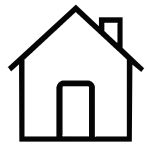When we think of plants, we typically picture lush green leaves full of life and energy. However, some plants aren't as healthy as they look. Sometimes, a slow-growing plant is a sign that something is wrong with it, possibly due to various factors.
Plants that grow too slowly are likely to suffer from nutrient deficiency. In the long run, their quality and final yields will be compromised.
In this article, we'll cover what can cause your plants to grow too slowly, how you can identify it if this happens, and what you can do about it (if anything).
The Reasons Why Plants Grow So Slow?
Several factors contribute to slow growth in plants. They include:
Lack of Grow Light
Indoor plants need sufficient lighting, or they will grow slowly. They must receive at least eight hours of continuous lighting daily. Plants grown in a poorly lit environment cannot produce energy that will sustain their growth.
Some signs common in plants that do not receive enough light include thin and elongated stems and pale leaves. To help regain the glory of your indoor plants, you should invest in quality LED grow lights.
Mars Hydro grow lights are the best LED grow lights for indoor plants that will help you deal with slow growth in plants. Once you hang the grow lights in your grow tent, they will help your plants receive adequate light without burning their leaves; The results will be healthy plants with bountiful buds!
Lack of Essential Nutrients
Your seedlings will stall for a while after germination if they lack enough nutrients in the grow medium. Nutrients in the soil enable seedlings to make food that helps them grow at a standard rate. You should provide enough nitrogen foods to your young plants if they suddenly stop growing if they are growing at a slower pace.
Slow growth may be a result of poor root aeration. Developing roots need sulfur, phosphorus, and other essential nutrients to grow fast. Fertile soils should have medium levels of:
- Sulfur (S)
- Potassium (K)
- Magnesium (Mg)
- Calcium (Ca)
- Nitrogen (N)
- Phosphorous (P)
Enough phosphorus nutrients facilitate seedling growth, and Nitrogen is essential for making chlorophyll ~ a plant cell responsible for respiration.
On the other hand, if your plant leaves are pale green or yellow yet you are using grow lights correctly, it is a clear sign that you should feed your plants with adequate nutrients for quick recovery.
Poor Soil Structure
Soil structure is a significant factor that helps determine the rate at which your plant roots will grow. A good soil structure should have good drainage with loose particles that allow indoor plant roots to breathe.
Also, the soil should have organic matter. If your plants are growing at a slow rate, it is either the soil is crumbly or its structure doesn't dry sufficiently.
Despite seedlings doing well in loosely packed soil structures, it doesn't mean plants grown on clay soil grow slower than the ones on loamy soil. Instead, the plant species determine the soil structure you should use.
Some plants do well on clay, and some perform on loam. Some growers prefer mixing loam soil with fine particles of sand for proper drainage and to prevent leaching.
Lack of Water
Maturing plants need water as it helps transport critical nutrients and minerals from the roots to the leaves, through the stem. Plants that lack water will experience slow growth, and they will wither and dry up in adverse conditions.
To encourage faster growth of crops, water them frequently and never let the soil dry up completely. Do not overwater, either.
You can feel the soil moisture using your finger to find the right balance in your watering regimen. If the soil surface feels dry, or the first 6-8 inches of the soil is not moist, it's time to water your plants!
Pests and Infestations
Once pests attack your indoor plants, there will be minimal nutrients for your potted plants. This will affect your plants' growth, and they may die. Several pests, like fungus molds, thrive in humid conditions. Hence, you should be aware of the plants you are growing.
Once you have identified pests that have invaded your plants, you may introduce organic pest control measures to counter their effects. But, it is easier to prevent than cure.
To counter infestations, you should install Mars Hydro Inline Duct fans. Our Inline duct fans will expel heat, and excess humidity from your grow rooms and tents. Also, the fans help filter the air, and pests will find no passage into your crop area.
Improper Temperature
Too low temperatures will lead to plants' slow growth, and too high temperatures may burn them.
Mars Hydro grow tents allow you to control the temperature at which your plants grow. The grow tents are neither cold nor too hot and help protect your indoor plants from fluctuating weather conditions.
Wrap Up on Slow Growing Plants
The only solution to counter slow-growing indoor plants is by providing optimum conditions for plant conditions. Buy Mars Hydro LED grow lights, inline duct fans, and grow tents, as they will ensure your plants grow faster and produce high yields. For more information, Contact Us!






Thank you